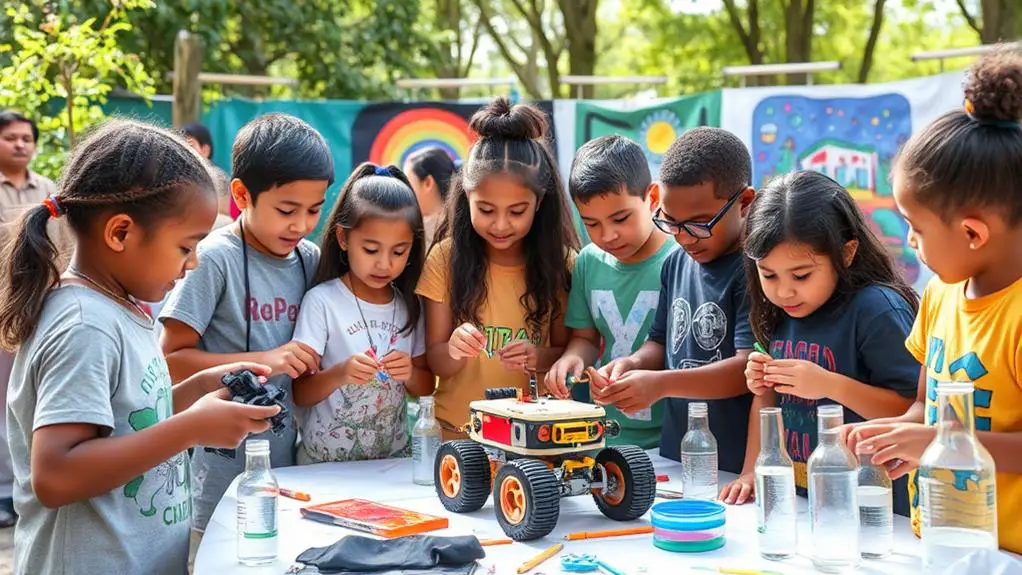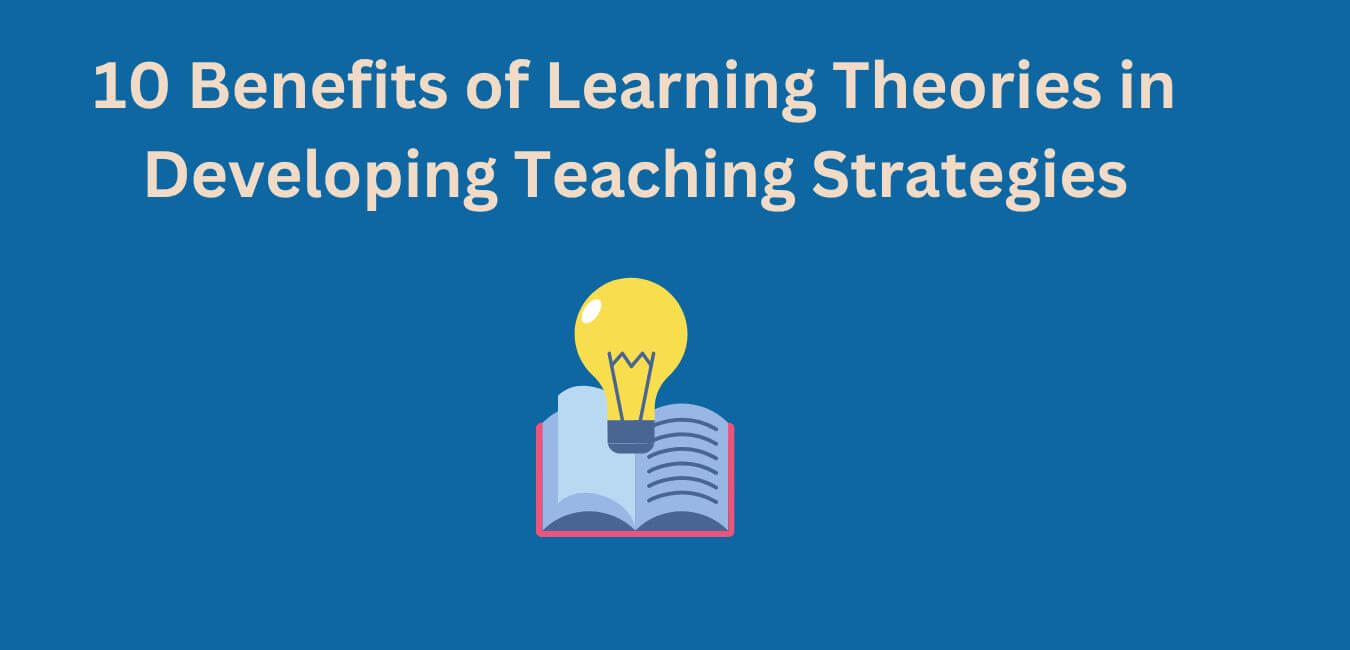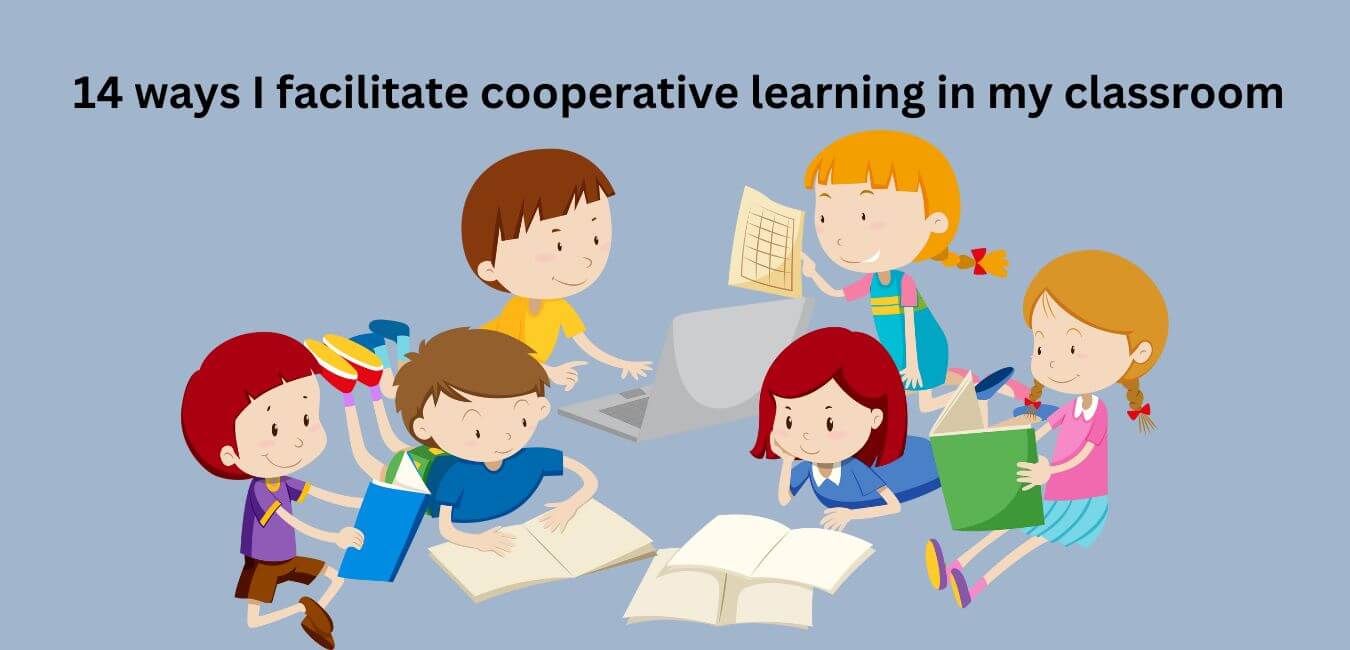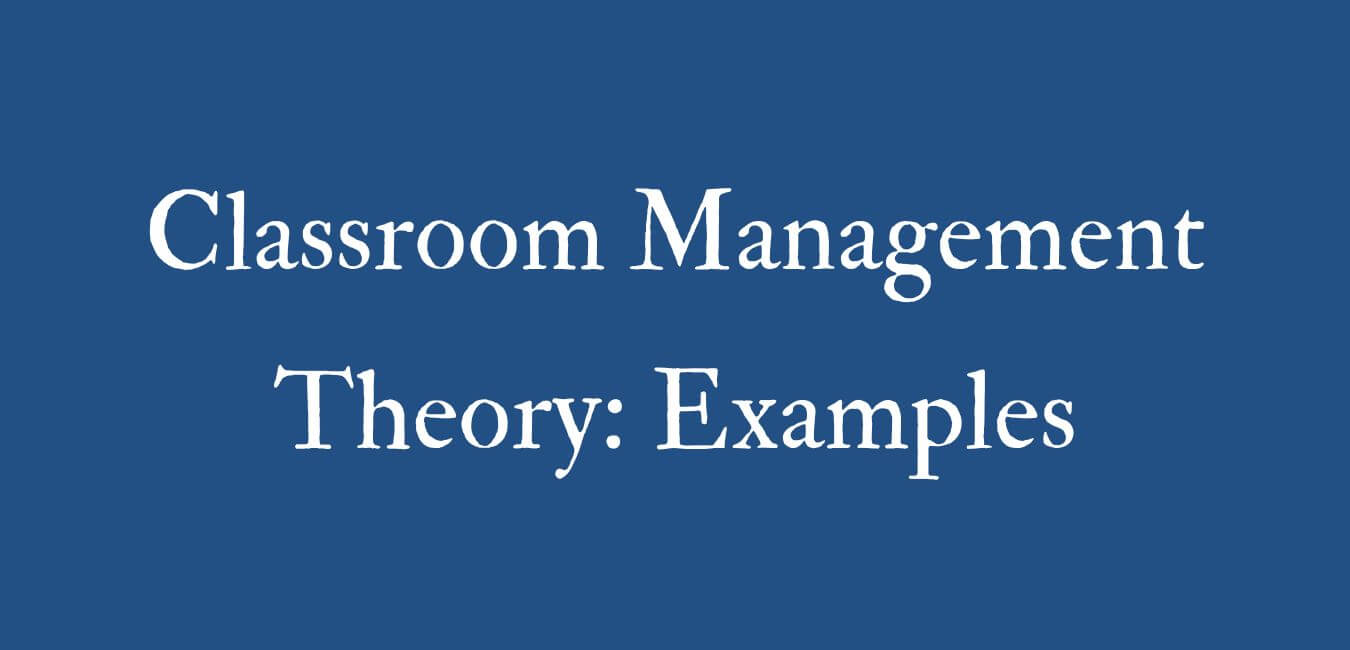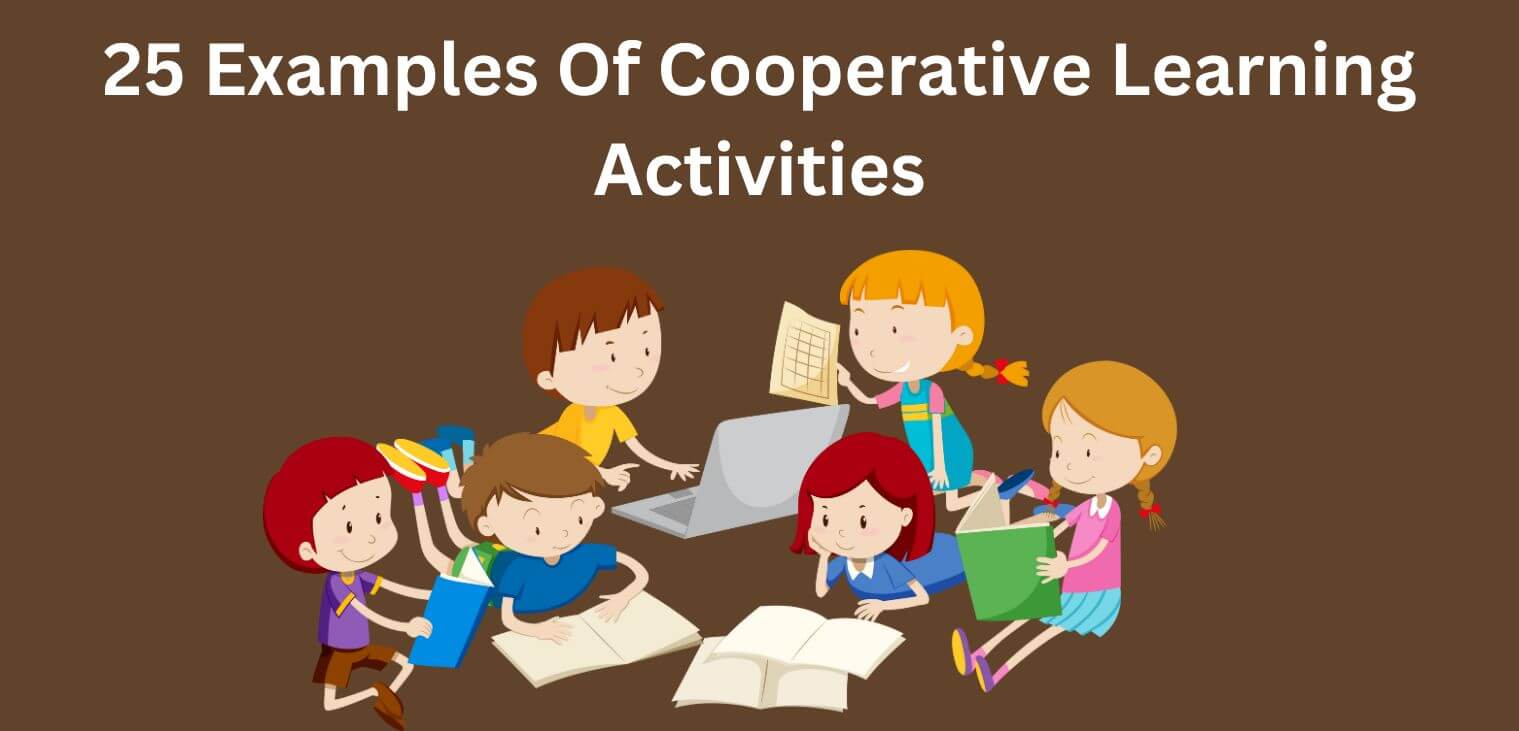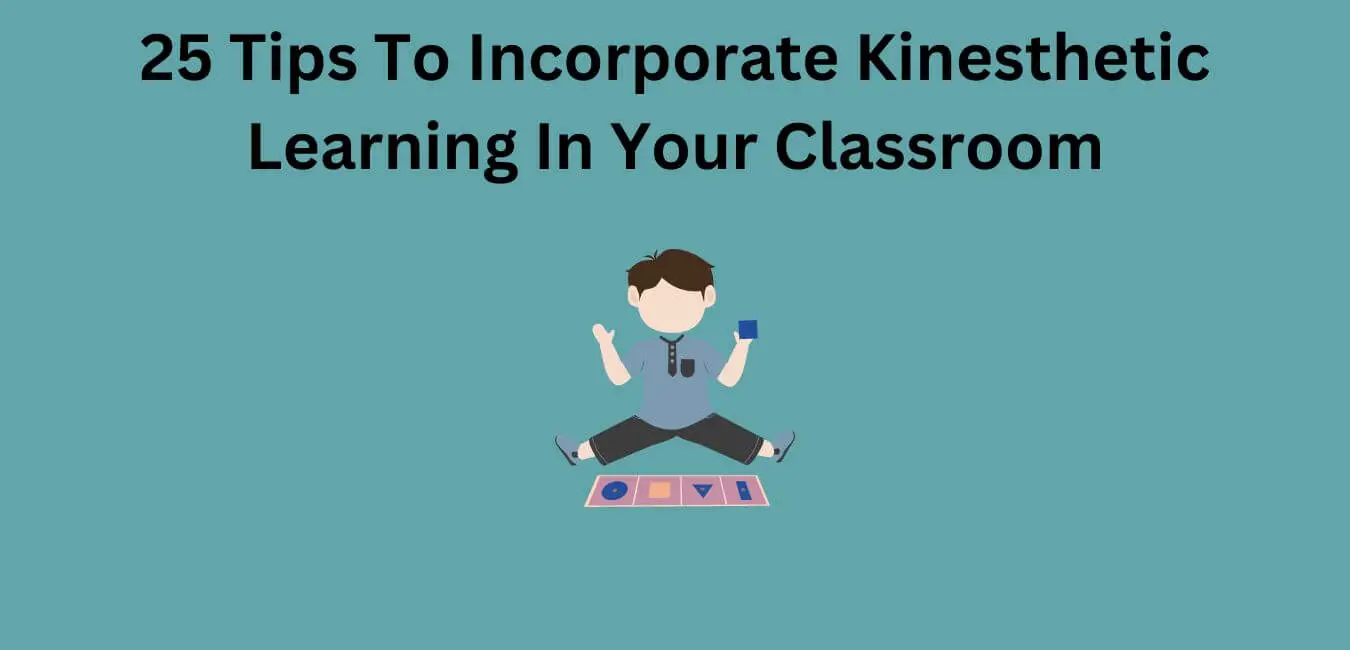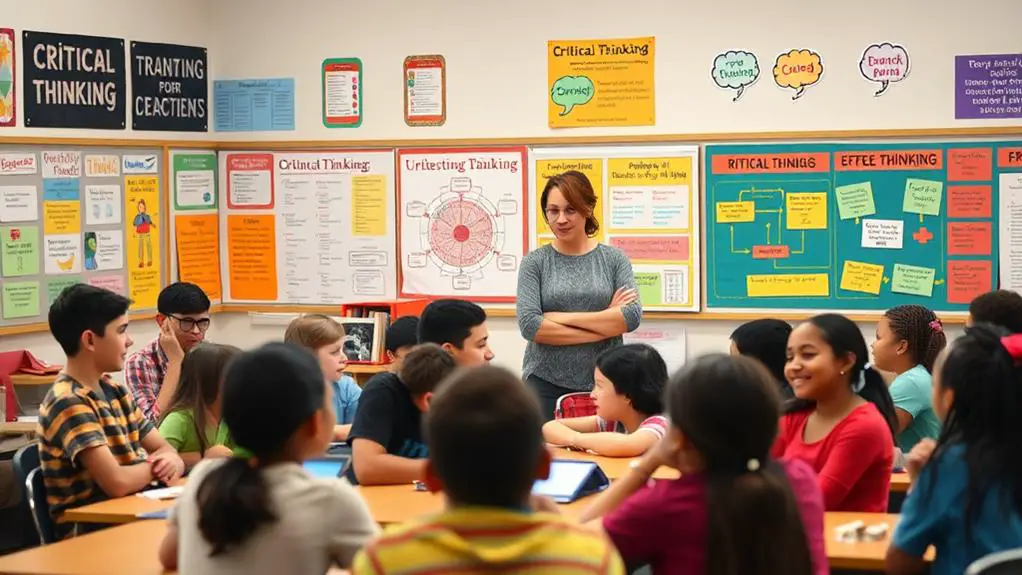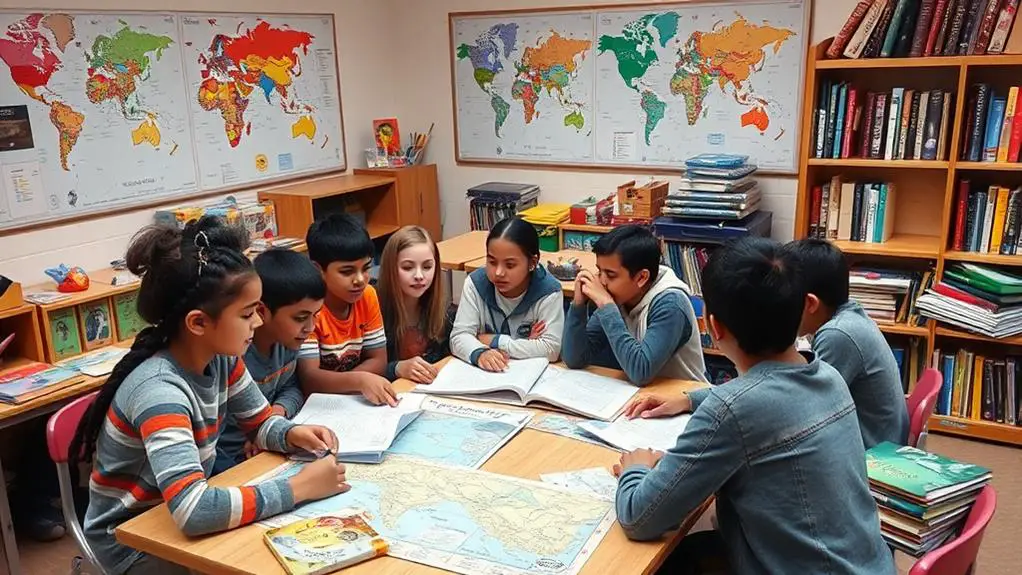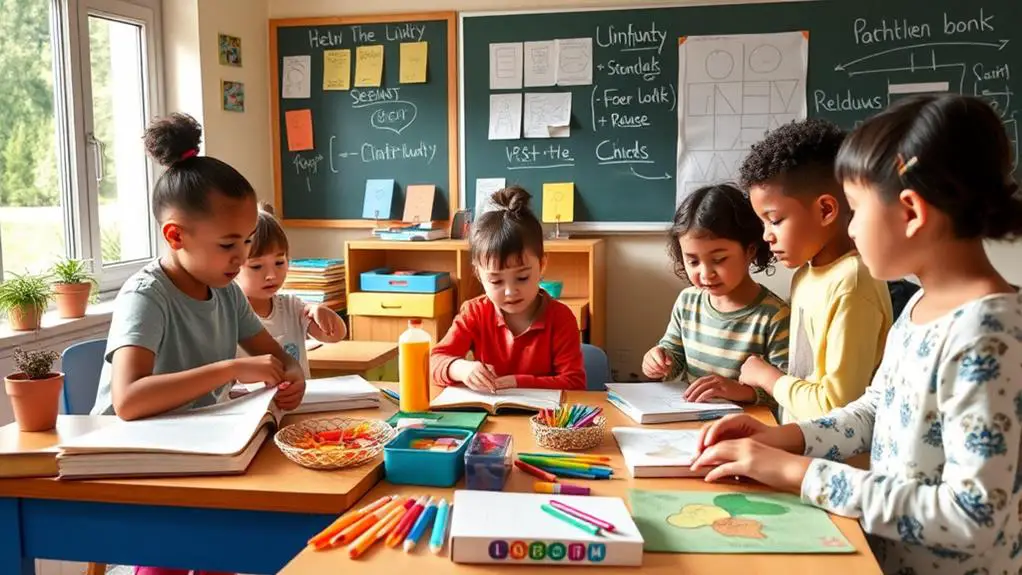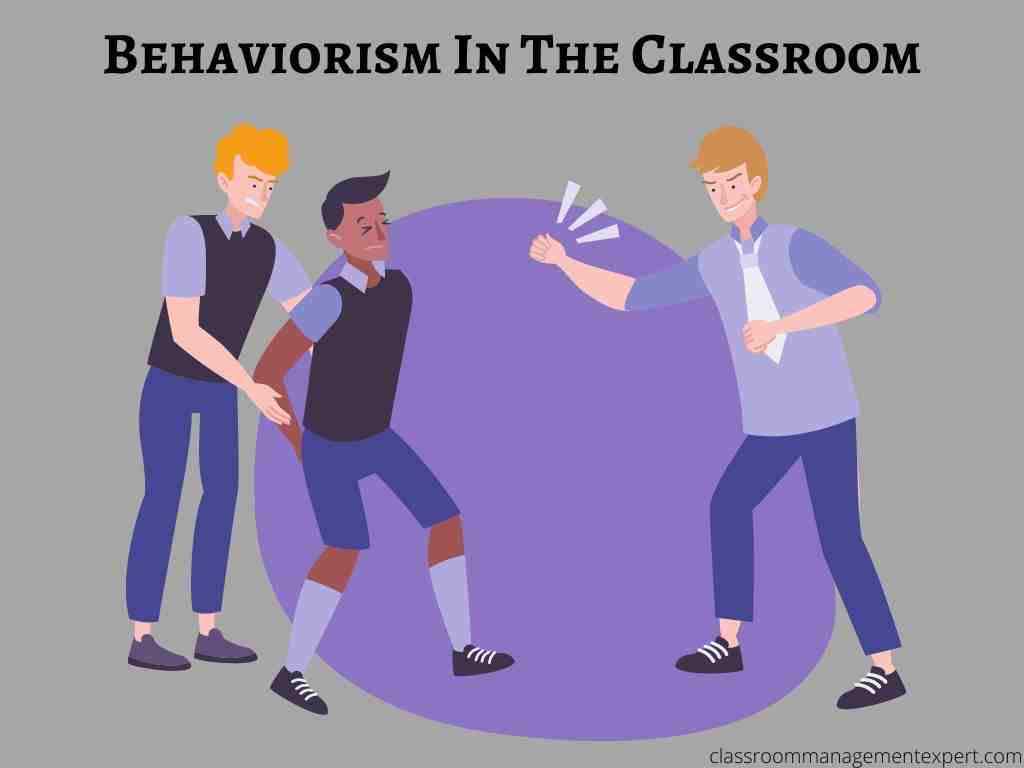Experiential learning is a powerful educational approach that emphasizes hands-on experiences to enhance understanding and retention of knowledge. This method often surpasses traditional learning techniques by creating emotional connections that deepen comprehension.
Engaging in practical activities not only makes the learning process more enjoyable but also nurtures essential skills such as critical thinking and teamwork. What truly distinguishes experiential learning is its effectiveness in preparing individuals for real-world situations, equipping them with the tools necessary to navigate challenges confidently.
The advantages of this learning style can significantly reshape our educational experiences. For instance, programs that incorporate simulations or real-life projects can lead to a more profound grasp of concepts compared to conventional lectures.
Enhances Retention of Knowledge
Learning is greatly enhanced through hands-on experiences. When I engage in activities that require active participation, I find that my retention of knowledge improves significantly. This process of engaging directly with the material not only strengthens my memory but also creates an emotional connection to the subject matter, making it easier to recall information later.
Sensory learning provides a contextual understanding that often eludes traditional methods like reading or listening. For example, during my time volunteering in community service, I gained insight into social issues by experiencing them firsthand. This transformation of abstract ideas into concrete realities is a powerful form of knowledge transfer.
Reflective practice plays a crucial role in consolidating what I learn through these experiences. Discussing these moments with others deepens my understanding and reinforces retention.
Develops Critical Thinking Skills
Experiential learning is a powerful method for enhancing critical thinking skills. Engaging in hands-on activities leads to a deeper analysis of situations and helps me make connections that might be missed in a conventional classroom. This process involves analytical reasoning, where I deconstruct complex issues into smaller, more manageable components and assess potential solutions.
Reflective practice plays a crucial role in this learning journey. It prompts me to evaluate my actions and their results, moving beyond a simple assessment of right or wrong. This reflection focuses on grasping the fundamental principles and values that inform my choices. By actively contemplating my experiences, I can improve my strategies and adapt effectively to future challenges.
Navigating various scenarios fosters my ability to consider diverse perspectives. This skill is particularly important when serving others, as it enables me to empathize with different viewpoints and make informed decisions that genuinely benefit those around me.
Ultimately, experiential learning transforms critical thinking from a mere theoretical concept into a practical tool that enhances my ability to serve and uplift others meaningfully.
Fosters Collaboration and Teamwork
Collaboration and teamwork are essential elements in hands-on learning environments. Engaging in experiential learning fosters opportunities for meaningful peer interaction. Participating in collaborative projects enhances our communication skills and strengthens group dynamics. Working together towards shared goals necessitates trust-building, which is a crucial aspect of teamwork.
In these collaborative settings, each individual takes on specific roles, allowing us to recognize and value the unique contributions of our teammates. I often find myself navigating conflict resolution, learning to address challenges in a constructive manner. This experience is invaluable as it teaches us to listen actively and engage in thoughtful feedback, leading to a greater understanding of different perspectives.
Social learning flourishes through collaboration, enabling us to draw from one another’s experiences and insights. The dynamic energy of working together sparks creativity and innovation.
I’ve witnessed how the relationships formed in these environments not only enhance our projects but also create lasting connections that extend beyond the classroom or workplace. Embracing collaboration in experiential learning equips us with vital skills for community-focused endeavors, preparing us to serve others effectively.
Encourages Real-World Application
Experiential learning is a powerful approach that emphasizes applying knowledge in real-world situations. This method transcends traditional learning by enabling individuals to acquire practical skills that enhance their problem-solving capabilities in everyday scenarios. Engaging actively in hands-on experiences makes the process of learning not only relevant but also impactful.
For example, participating in internships allows students to experience workplace dynamics firsthand, bridging the gap between classroom theory and actual job responsibilities. Similarly, community service projects can cultivate teamwork and communication skills while addressing local needs.
These experiences highlight the importance of experiential learning in developing competencies that are directly applicable to future careers and personal growth.
Using tools such as simulations or role-playing exercises can further enhance this learning style, providing opportunities to practice decision-making in a controlled environment.
Ultimately, experiential learning fosters a deeper understanding of concepts by showing their practical implications, making education feel more meaningful and connected to real life.
Practical Skills Development
In our rapidly changing world, acquiring practical skills is crucial for achieving success. Experiential learning offers invaluable hands-on experiences that empower individuals to excel in their careers and make meaningful contributions to society. Engaging in project-based learning enables me to address real-world challenges pertinent to my field, significantly increasing my relevance within the industry.
Conducting skill assessments helps me pinpoint both my strengths and areas needing improvement, which is essential for personal growth. A major advantage of this approach is the mentorship opportunities that emerge during these experiences. Collaborating with experienced professionals provides me with personalized feedback that shapes my development, ensuring I adapt my skills to align with the job market’s needs.
The integration of technology is critical in this learning journey, as it grants access to a wealth of resources that deepen my understanding and practical application of skills. This tailored learning strategy not only prepares me for entering the workforce but also instills confidence and competence in serving others.
Focusing on practical skills development fosters not just knowledge acquisition, but also enhances my ability to contribute effectively to my community. Embracing this method of learning can significantly elevate our potential to create a positive impact.
Enhanced Problem-Solving Abilities
Experiential learning significantly enhances my problem-solving skills through practical application. Engaging in hands-on experiences presents real challenges that require innovative solutions. Each situation compels me to utilize a variety of problem-solving techniques, which sharpens my ability to adapt my thinking.
In collaborative projects, I learn to effectively prioritize tasks, allowing us to address issues in a systematic way. This structured approach not only increases our efficiency but also creates a collaborative environment where everyone’s ideas are appreciated. I regularly reflect on my experiences, analyzing what strategies were successful and which were not. This reflective practice strengthens my skills for future challenges.
Here’s a concise overview of how experiential learning enhances my problem-solving skills:
| Aspect | Description |
|---|---|
| Problem Solving Techniques | Utilizing various methods to address challenges |
| Real Life Scenarios | Tackling genuine challenges |
| Creative Solutions | Generating innovative answers |
| Task Prioritization | Structuring tasks for streamlined problem-solving |
| Adaptive Thinking | Modifying strategies based on emerging information |
Ultimately, these experiences equip me to serve others more effectively.
Increases Student Engagement
Engaging students is essential for effective learning, and experiential learning achieves this through interactive activities. These hands-on experiences allow students to connect deeply with the material, applying their knowledge in real-world contexts. This approach fosters a sense of independence that traditional teaching methods often miss.
In immersive learning environments, students gain insights not only from instructors but also from their peers. Collaboration in project-based learning and experiential workshops enhances peer interaction, creating a sense of community and demonstrating that collective efforts can lead to meaningful change.
Incorporating feedback mechanisms is vital for reflecting on experiences, ensuring that students understand and grow from them. Reflecting on contributions and learning from others enriches the educational journey.
Experiential learning thus transforms classrooms into dynamic spaces where engagement thrives. By emphasizing these elements, we can inspire a love for learning that benefits both students and the communities they aim to serve.
Builds Confidence and Independence
Experiential learning plays a crucial role in developing practical skills that can enhance confidence and foster independence. Engaging with real-world challenges enables me to notice a significant improvement in my decision-making abilities.
This hands-on approach not only contributes to my personal growth but also empowers me to feel more self-sufficient in my choices. For instance, when working on a group project, I actively participate in brainstorming sessions and take the lead in implementing solutions.
This involvement not only strengthens my skills but also reinforces my belief in my capabilities. Overall, the experience of tackling tangible problems is vital for building both confidence and independence.
Practical Skill Development
Practical skill development is essential for enhancing our abilities while instilling confidence and independence. Engaging in hands-on experiences allows us to effectively navigate real-world challenges, improving our adaptability. Through immersive activities and project-based learning, each encounter equips us to approach future tasks with greater assurance.
Here’s an overview of how practical skill development can manifest:
| Activity Type | Benefits | Outcomes |
|---|---|---|
| Hands-on Experience | Application in real settings | Enhanced problem-solving abilities |
| Skills Assessment | Recognition of strengths and weaknesses | Focused personal development |
| Peer Evaluations | Valuable feedback | Strengthened teamwork skills |
| Adaptability Training | Versatility in methods | Greater resilience |
| Mentorship Opportunities | Advice from seasoned professionals | Improved industry connections |
Engaging in these activities not only builds essential skills but also prepares individuals to face future challenges with confidence.
Enhanced Decision-Making Abilities
Hands-on experiences significantly enhance our decision-making skills. Engaging in real-life situations enables us to implement decision-making frameworks, which helps clarify our thoughts and actions. For instance, using risk assessment techniques during these experiences deepens my grasp of potential outcomes and emphasizes the necessity of situational analysis.
When encountering challenges, I often draw on emotional intelligence to understand both my emotions and those of others involved. This awareness leads to improved group dynamics, promoting effective collaboration. Incorporating feedback mechanisms fine-tunes our choices, ensuring that we learn from each experience.
Scenario planning helps us foresee various possibilities and prepare accordingly, while remaining aware of cognitive biases that could distort our judgment. Through reflective practices, I critically assess my decisions, integrating ethical considerations into my thought process and aligning them with my core values.
These experiences ultimately bolster my confidence and independence. Each decision I make serves as an opportunity for growth, both personally and in my ability to assist others more effectively.
Supports Diverse Learning Styles
Experiential learning offers unique opportunities for individuals to engage with information in ways that align with their personal learning styles. This approach recognizes that everyone processes information differently, making it essential to provide varied techniques that cater to diverse preferences. Whether someone learns best through visual aids or hands-on activities, experiential learning ensures that all students have access to meaningful experiences that enhance their understanding.
The table below highlights various learning styles and how experiential learning effectively addresses them:
| Learning Style | Experiential Approach | Benefits |
|---|---|---|
| Visual Learning | Interactive presentations | Enhances comprehension through visual tools |
| Tactile Experiences | Hands-on workshops | Develops skills through direct practice |
| Emotional Connections | Storytelling | Fosters empathy and deeper insight |
| Cultural Perspectives | Group discussions | Expands viewpoints through collaborative dialogue |
| Social Interactions | Team-based projects | Strengthens community and teamwork |
Through engaging activities that stimulate the senses, individuals can reflect on their experiences, enriching their understanding of the material. Experiential learning embraces the multitude of ways people learn, ensuring inclusivity and support for all learners. Observing the collective growth of individuals in pursuit of knowledge and service to others is truly fulfilling.
Promotes Lifelong Learning
Experiential learning is a powerful approach that promotes lifelong learning and helps individuals actively engage in their education. This method encourages hands-on experiences, allowing learners to not only absorb information but also to take an active role in their personal growth and development.
When I put theory into practice, I discover the true value of what I’ve learned. This practical application offers essential feedback, enabling me to reflect on my choices and adapt my strategies for future situations. As I evaluate my strengths and weaknesses, I cultivate a deeper motivation to pursue ongoing learning.
Committing to lifelong learning also involves sharing knowledge with others. Contributing to community initiatives or engaging in meaningful conversations reinforces my understanding while supporting those around me.
Conclusion
Experiential learning is an educational approach that emphasizes learning through direct experience. This method allows individuals to engage actively in their education, leading to deeper understanding and retention of knowledge. It is vital as it prepares students for real-world challenges by equipping them with practical skills and confidence.
In conclusion, experiential learning significantly enhances our educational journey. It opens a treasure chest of skills and insights, empowering us for various life adventures. Engaging in hands-on activities not only deepens our understanding but also fosters confidence that propels us forward. Therefore, it is essential to seek out and embrace these enriching opportunities, nurturing our curiosity and passion for learning along the way.

